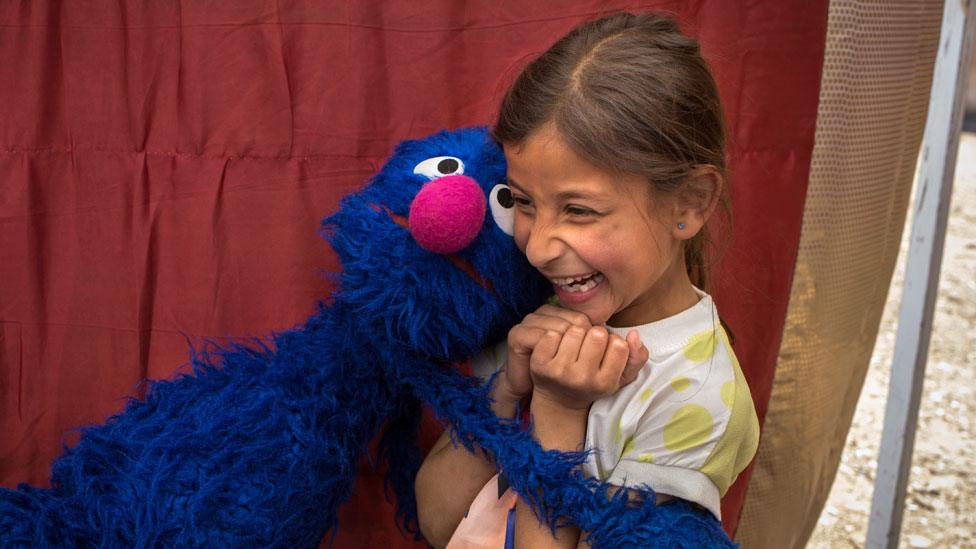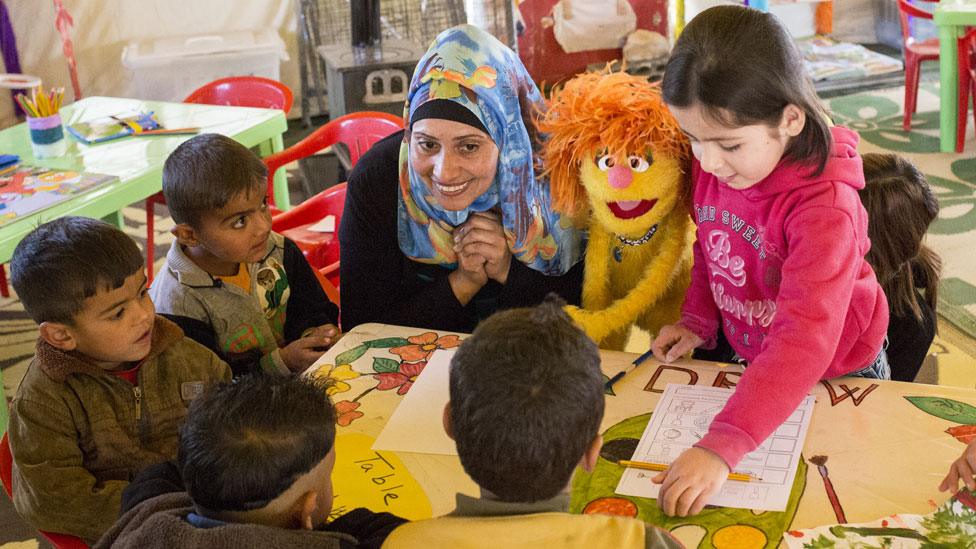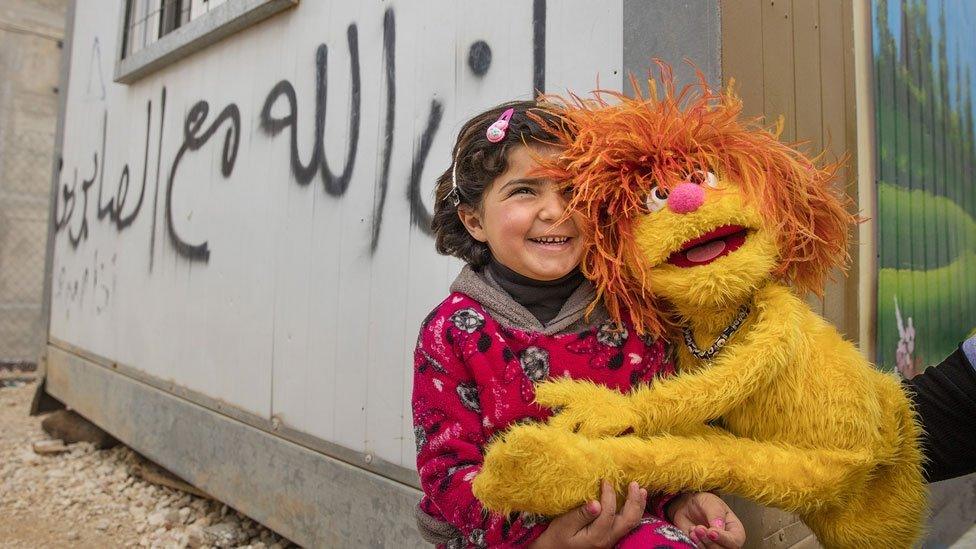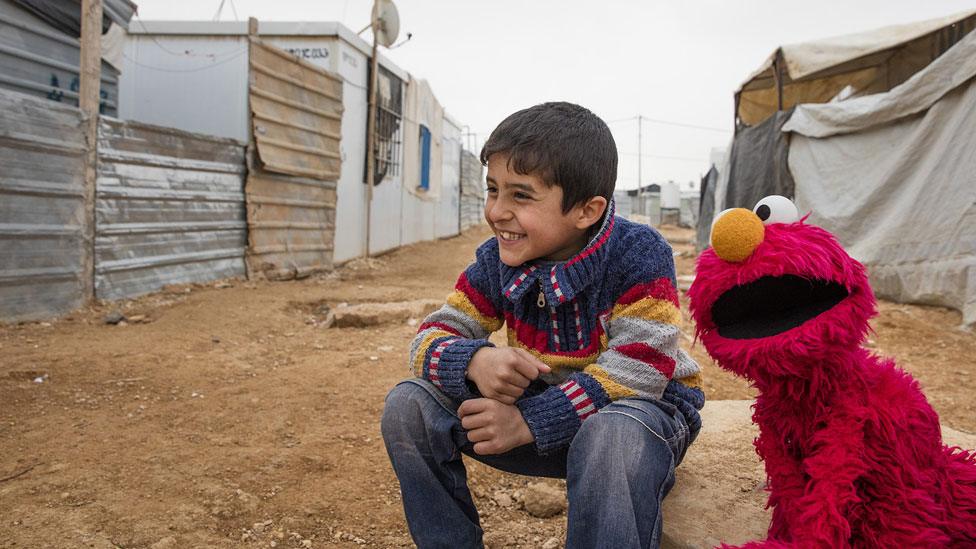Sesame Street to help Syrian refugees
- Published

Sesame Street will be used to rebuild trust among millions of displaced children from Syria
Characters from the children's television programme Sesame Street are going to be used to help teach children displaced by war in Syria.
The Sesame Workshop and the International Rescue Committee have won a $100m (£75m) grant to help with the "toxic stress" on child refugees.
It will help children in Jordan, Lebanon, Iraq and Syria
Jeffrey Dunn, head of Sesame Workshop, said Syria's refugee crisis was the "humanitarian issue of our time".
"This may be our most important initiative ever," he said.
Tackling trauma
The award has been made by the Chicago-based John D and Catherine T MacArthur Foundation, which wants to make "big bets" on influencing major challenges.

Sesame Street is going to be used as a way of helping teach traumatised youngsters about relationships
It's one of the biggest single philanthropic donations to such an education project - and will fund efforts to provide early years education and tackle the trauma of millions of young refugees created by Syria's conflict.
It will produce a customised version of Sesame Street for the young Syrian refugees, available on mobile phones, which will support literacy and numeracy, help to teach about relationships and encourage respect for others.

This is being claimed as the biggest such humanitarian intervention for early years learning
There will also be child development centres created, where parents will be able to bring children, and where advice, resources and information will be available.
Julia Stasch, president of the foundation, said this would be "the largest early childhood intervention program ever created in a humanitarian setting".
"Less than 2% of the global humanitarian aid budget is dedicated to education, and only a sliver of all education assistance benefits young children.

Millions of young refugees are living in countries such as Lebanon and Jordan
"The longer-term goal is to change the system of humanitarian aid to focus more on helping to ensure the future of young children through education."
David Miliband, president of the International Rescue Committee, said the funding would "bring hope and opportunity to a generation of refugee children".
"At a time when governments are in retreat, [non-governmental organisations] and philanthropists need to step up, and that is what we are seeing here - and in a big way."